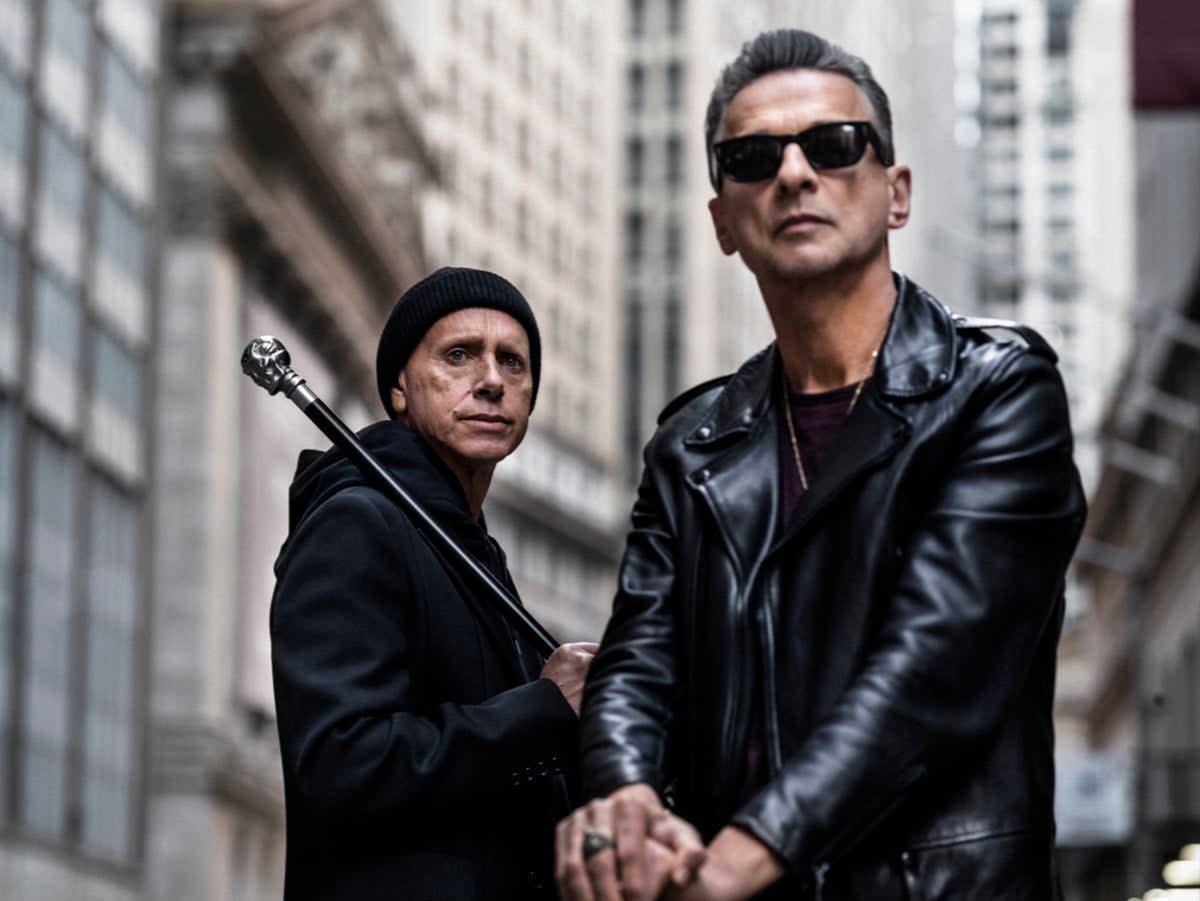Depeche Mode review, Memento Mori: Facing down the inevitable

Depeche Mode have always danced with death. Listen to, say, 1990’s “Enjoy the Silence” and you’ll detect a dark, simmering nihilism eager to remind us that we all die eventually. Even their most lustful tracks are accompanied by an urgency that borders on frantic, as though time might run out before the chance for one last bonk.
Memento Mori, the band’s 15th album, is unique because the inevitable has, in fact, happened – only much sooner than anyone could have predicted. The sudden death of keyboardist Andrew Fletcher, aged 60, last year means the band are now a duo. Dave Gahan and Martin Gore have been left to process the stark reality of what has always captivated their music.
The grief on the record is deeply felt, but perhaps more striking is its sense of resolve. “Soul With Me” is a magnificent ode to ageing: “I see the beauty/ As the leaves start falling”, Gore sings. “Follow the light/ Towards the voices calling”. His farewell croons are redolent of Frank Sinatra bowing out on “My Way”, pulled towards something out of sight by the inviting tugs of electric guitar and celestial synth choirs. “Time is fleeting”, Gahan acknowledges on the single “Ghosts Again”. He doesn’t sound resentful; he sounds comforted.
The same can’t be said for “Don’t Say You Love Me”. It opens on a spaghetti western guitar lick – “bang bang, you’re dead”, Nancy Sinatra-style – with Gahan casting himself and his lover in a series of power-skewed roles. His sonorous vocal delivery, which typically sounds as though it’s been honed during midnight prowls through graveyards, increases in intensity. “You won’t do well to darken me/ With your secrets and your lies”, he intones on “Wagging Tongue”. “With your piercing code of silence/ Relax and join the ride”.
Gahan said in a recent interview that without Fletcher, everything feels like a first. They can’t unlearn their decades of experience, so instead they adopt a kind of back-to-basics approach. By avoiding clutter, both in lyrics and in instrumentation, each song feels like inhaling a gulp of cold, crisp air. Seemingly straightforward sentiment turns out to be deceptive. “People are good”, Gahan tries to insist on a track of the same name, only to admit he’s fooling himself. Humans are complicated, he and Gore seem to say. Death, by comparison, is relatively simple.
This article was amended on March 24 2023. It previously incorrectly referred to Tony Fletcher, but the band’s late keyboard player was, of course, Andrew. It was also changed to reflect the fact that “Enjoy the Silence” was recorded in 1989, but was not released until the following year


